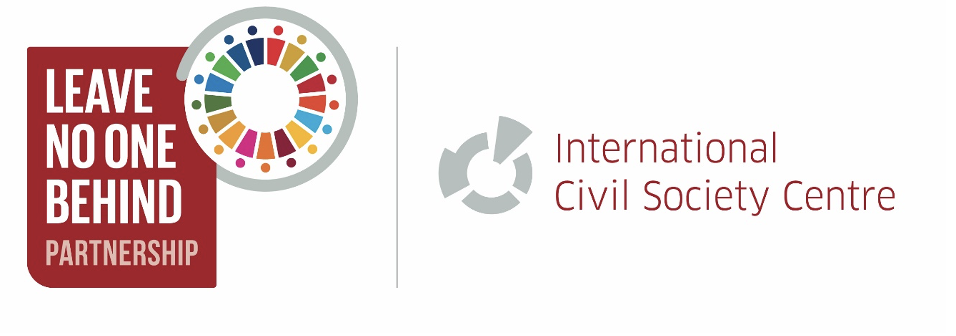

Amplifying the voices of marginalized communities through Citizen Data
Leave No One Behind Partnership (represented through the partnership’s global secretariat: International Civil Society Centre)
The about 100 member organisations of the LNOB partnership
For years now, there have been talks at the global level about realising the universal agenda to leave no one behind, and how this represents a major challenge for the international community. What has been missing so far is a practical approach that performs two critical tasks: generating evidence that can help identify the drivers behind the exclusion of diverse social groups, and using this evidence to inform policy-making and public service provision, supporting people to live in dignity. This approach has to be built based on fostering collaboration between authorities and civil society to jointly address the widely perceived problem of SDG data gaps, ensuring SDG implementation will be inclusive for all. This is what the Leave No One Behind partnership is committed to do.
In 2015, almost 200 countries unanimously adopted the Sustainable Development Goals (SDGs) and pledged to “leave no one behind.” However, numerous people and communities remain invisible to national statistical systems and therefore many structural development challenges remain poorly understood. This data gap and the lack of adequate means to engage these groups and hear their voices in planning and decision-making processes leads to their persistent exclusion and marginalization. These conditions are an existential threat to the successful delivery of the 2030 Agenda.
1. The LNOB Partnership commits to producing and making available data and evidence that is inclusive and relevant to the SDG’s underlying pledge to leave no one behind, focussing on the situation of marginalised communities.
2. The LNOB Partnership commits to foster and actively contribute to the creation of data collaboration mechanisms between government and civil society in its partner countries, with the goal of piloting and subsequently establishing long-term processes for the production and use of Citizen Data under a joint ownership of government and civil society. The partnership thereby actively contributes to implementing the Copenhagen Framework on Citizen Data.
3. The LNOB Partnership commits to providing training and capacity strengthening for grassroot Citizen Data producers, supporting them to generate and use quality data, while maintaining ethical research and privacy standards.
4. The LNOB Partnership commits to explore the development of new digital approaches to strengthen the data capacities of citizens and CSOs, increasing their capability to work with digital tools for data generation, analysis, visualisation and dissemination.
5. The LNOB Partnership commits to work closely with associations and platforms representing marginalised communities, particularly with regard to the production and use of Citizen data, in order to bring the situation of these communities to the attention of decision makers for increased accountability on sustainable and equitable development.
6. The LNOB Partnership commits to conducting regular cross-country assessments among its partner countries to measure stakeholder engagement and progress towards using citizen data for official purposes and the empowerment of marginalized communities.
Specifically, this commitment focused on diverse local municipalities and provinces in Bangladesh, India, Kenya, Malawi, Nigeria, Nepal, Vietnam.
The partnership will conduct regular evaluations at the global and national level, measuring the progress of our Theory of Change and the above commitments. We will present progress in the form of diverse reports and knowledge products that will be published over the coming years, and be presented at relevant global forums like the HLPF, UN World Data Forum, regional SDG Forums, and other relevant formats.
